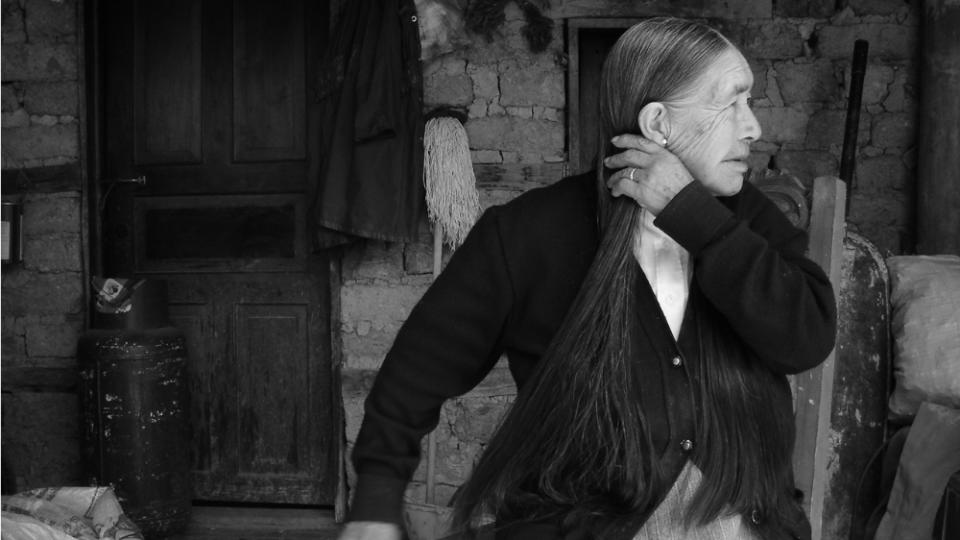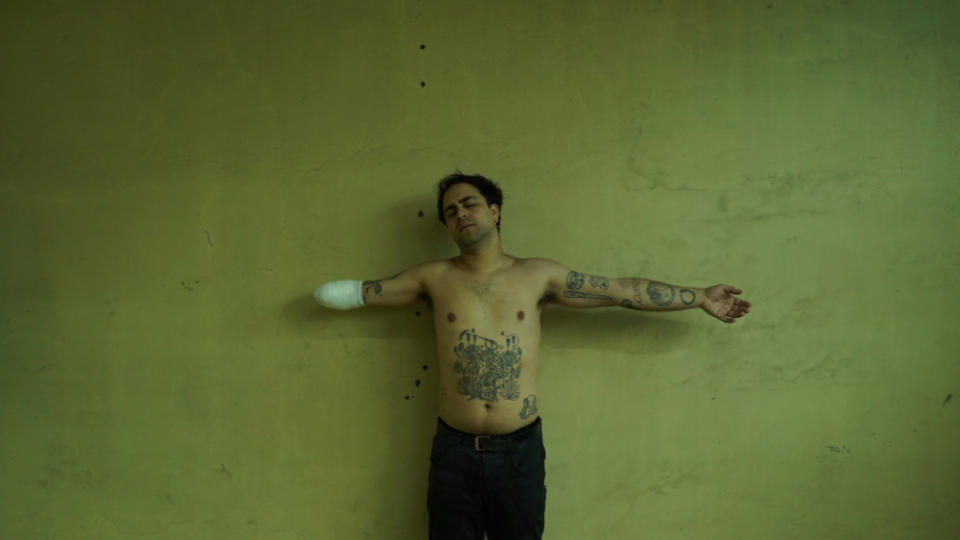‘The Stoplight Society’ Director Ruben Mendoza, Costa Rica’s Laura Astorga, Chile’s Equeco Set for Sanfic Industria’s Santiago Lab (EXCLUSIVE)

Sanfic Industria, the industry component of Chile’s 19th Santiago International Film Festival (Sanfic), charges back in full in-person mode this year after three years online. This year’s selection, comprising 11 fiction and 10 documentaries, hails from Chile, Argentina, Colombia, Honduras, Mexico, Guatemala, Costa Rica, El Salvador, Peru, Spain and Brazil.
The primary focus of this space is to equip the projects with various tools to consider their audiences from the early development stages, as well as aspects related to distribution, international reach and circulation, according to Sanfic Industria head, Gabriela Sandoval.
More from Variety
“This call for submissions posed a significant selection challenge, as we once again received an unprecedented number of applications, all of which showcased projects of exceptional quality,” said Sandoval who added that online consultations run from Aug. 16 to 21 while in-person activities will take place from August 23 to 26. A final pitch is scheduled for Aug. 26 for both in-person and remote presentations.
“We are proud to maintain gender parity, with 50% of both female and male directors and producers. The projects encompass a wide range of themes, from personal stories with global relevance to universal narratives that portray a clear and distinctive Ibero-American perspective,” she commented.
The themes explored include the retrieval of memories in such titles as “Three Fishing Rods” (“Bogueros”); LGBTQ dramas in “Plaster Virgins” and “The Queens of La Praviana”; the birth of a musical band in “Germain: The Black Angel”; social issues in “Fire’s Orchard,” “Sun Falls” and “An Amputee,” as well as territorial disputes in “Green Inferno.”

“We were delighted to receive a substantial number of projects from both seasoned directors and producers, as well as emerging talents. For many of these projects, Sanfic Industria will serve as their inaugural laboratory experience, while for others, it will be the final step before filming begins. This diverse mix fosters a highly productive group dynamic, allowing each project not only to receive guidance from their tutors and advisors but also to benefit from the input of their peers who share the laboratory,” said Sandoval.
Participants in the Santiago Lab – Fiction section will be mentored by Arturo Perez and Nathalia Videla Peña.
Perez is the co-founder of Vendo Cine, an international film distributor and sales company. He has also led the industry section of the Ibero-American Film Festival of Miami since 2022.
Videla Peña founded the production companies Magma Cine and Movimiento Audiovisual and has produced more than 30 international and local feature films, fiction series, documentaries and short films, collaborating with the likes of 21st Century Fox, Participant Media and Movistar, among others.
The 19th Sanfic runs August 20-27.
2023 Santiago Lab – Fiction
“Azteca Love,” (Alejandra Testa, Mexico)
A time travel adventure romance that sparks when a young woman accidentally resurrects an Aztec Warrior. Together with her brother and sister-in-law, they race to bring him back to the sacred site that will send the Aztec back to his own time, 1510. The situation takes a complicated turn when the young woman and the Aztec warrior fall in love. Written by Testa, the script took first place at the FilmarketHub screenplay competition. Her short, “Justicia,” is currently in post. “’Aztec Love’ is an entertaining project that aims to captivate audiences and, with the right production team’s commitment, could make cinematic history,” said Testa.

“Maybe Tomorrow Everything Starts Again,” (“Tal vez mañana todo comience de nuevo,” Víctor Hugo Perona, Felipe Azúa, Chile)
Produced by Azua’s Avispa Cine, the romantic drama turns on a couple where a young woman, Daniela, seeks out her ex with whom she experienced the loss of a child. When she finds outs that she’s pregnant again, she convinces him to go through the process again, with the hope that things will turn out better this time. Together, they will try to find meaning in their lives while coming to terms with the pain that led to their separation. Director Hugo Perona has a string of lauded short films to his name. Azua is a founding member of Chile’s Independent Producers Association (API).
“Plaster Virgins,” (“Vírgenes de yeso,” Katherina Harder, Cynthia García Calvo, Chile)
Coming-of-age LGBTQ+ drama turns on 13-year-old Rosario who lives in the northern Chile town of La Tirana with her mother with whom she paints and sells religious plaster figures. On the eve of the traditional Fiesta de la Virgen de la Tirana, she meets Ayleen (16), a Peruvian caporal dancer, who stirs a sexual awakening. Argentine-born producer Garcia Calvo produced “Medea” (2017), “Delirio” by Alexandra Latishev, and is a co-producer of the Argentine films “La noche adentro” (2023) and “Just One Spring” (2023). “’Vírgenes de yeso’ rescues some elements of the northern and Andean identity of the extreme north of Chile to tell the story of a 13-year-old girl who, in the search of her own voice, clashes with her traditional Catholic upbringing and the paradigms of the town,” said Garcia Calvo.
“Germain: The Black Angel,” (“Germaín, el ángel negro,” Tomás Alzamora, Pablo Calisto, Chile)
Period musical drama based on the life of Chilean artist Germain de la Fuente who founded duo Los Angeles Negros. The story begins when at 16, he discovers his talent in music and with his friend Checho Rojas (22), forms the popular band. His girlfriend Isabella (15), who’s not really into the bohemian lifestyle, decides to break up. Germain, heartbroken, takes refuge in his music. Film is part of a trilogy by director Tomás Alzamora, all inspired by his homeland. “In this particular case, the story draws inspiration from one of the most significant voices in Latin America, Germain De la Fuente,” he said. Producer Calisto, founder of indie Equeco, has participated in a host of international markets and was awarded in Clermont Ferrand, Biarritz and Miami. He is co-founder of the Ñuble Film Festival.
“Fire’s Orchard” (“Deberes del fuego,” Ruben Mendoza, Karol Muñoz, Colombia)
Doña Lola is at loggerheads with an oil company that wants to destroy the town’s cemetery. Meanwhile, 14-year-old Milena bursts into her life, escaping from a massacre where she was raped. The old woman helps her to have a natural abortion and Milena finds that the everyday struggles in the countryside give her a purpose in life. Producer Muñoz is co-creator of Mamut, an audiovisual memory festival that has been held since 2016 in Medellín. She produced director Rubén Mendoza’s seventh feature film, “BambúMoon,” now in post. The multi-awarded Mendoza, who first gained international recognition with his feature “The Stoplight Society,” is one of Colombia’s most prominent filmmakers.

“Sun Falls,” (“Cae el Sol,” Aeden, Ana Isabel Martins, Honduras, Mexico, Guatemala)
“In a Honduras of migrant caravans and protests, an amateur filmmaker from the slums makes a movie that no one wants to watch until the leader of the local gang offers to help him distribute it,” the synopsis goes. “Sun Falls,” just presented at Locarno’s Open Doors, is the second feature of Honduran director Aeden who focuses on social dramas and thrillers in multicultural environments. His debut feature “90 Minutes,” a contemporary take on Honduras, filtered through its fixation on soccer, won the Audience Award at the 37th Miami Film Festival. Producer Ana Isabel Martins leads the production of the International Ícaro Festival in Honduras and is a founding member of Linterna Mágica, the Honduran Filmmakers Association, and the Collective of Honduran Filmmakers. Among her film credits are “The Ice Cream Man” (2016), “A Place in the Caribbean” (2017), “Days of Light” (2019), and “90 Minutes” (2019).
“An Amputee,” (“Un Amputado,” Ignacio Pavez, Ivo Malinarich, Chile)
A docu-fiction drama that turns on 35-year-old Raul, a drug addict, who loses part of his arm in an accident that sinks him into a deep depression. As he struggles to navigate an ineffectual health system and the apathy of the people around him, he discovers some truths that will lead him to find his place in the world once more. “My intention is not to create a film solely centered on individuals with disabilities. Instead, I aim to delve into the mechanisms of exclusion surrounding Raúl, while exploring the journey of a specific group of Chilean and Latin American youth. These young individuals aspire to discover a purposeful destination in their lives, shedding light on the broader themes of inclusion and belonging,” said Pavez.
“Green Inferno,” (“Animal Lluvioso,” Laura Astorga, César Garrido, Costa Rica, Colombia, Brazil, Spain)
A group of environmentalists, in the thick of a legal and media battle with a paper mill company that is decimating the most biodiverse part of the country, are found dead after an allegedly accidental fire. A journalist and her congressman-father begin an investigation that leads them to dismantle the web of corruption but are unable to bring the culprits to justice. It spurs them on to continue the work of the environmentalists.
Costa Rican director Astorga, who has been investigating a similar case over the past five years, said: “This story is raised from ethics, respect, fragility and love, and against injustice. Paradoxically, today Costa Rica is sold as “without artificial ingredients,” but without the prowess of the environmental defenders of our history, Costa Rica’s image as a model of green sustainability would not exist.” Backed by the Ibermedia Program and the Marseille Region Fund, its cast includes Debi Nova (Costa Rica), Victor Mallarino (Colombia/Spain), Ileana García (Costa Rica-Colombia).
“The Queens of La Praviana,” (“Las Locas de la Praviana,” Brenda Esmeralda Vanegas, Juan Ricardo Dueñas, El Salvador, Spain)
Set in 1980s El Salvador at the height of the civil war in the La Praviana neighborhood, transgender woman Viento seeks revenge for the murder of her partner and the disappearance of her fellow trans sisters. Backed by the Ibermedia development fund among other entities, director Brenda Esmeralda Vanegas was inspired to tell this story while collaborating with an organization dedicated to preserving LGBTQ+ memories in El Salvador. “Unearthing the tragic massacre of unknown and disregarded trans women in official historical records sparked the urgency to shed light on their plight through fiction. This film is a compelling opportunity to rewrite history and honor their lives and struggles on screen,” she said.
“4EBER,” (Ximena Valdivia Salas, Mariano Rentería, Perú, México)
At the turn of the millennium, a new Andean myth emerges in the city of Cusco. Eber, a young techno dancer, finds his battlefield on the dance floor and discovers his true destiny: to become the new God of Lightning. Recipient of the alternative production incentive from Peru’s Ministry of Culture and the Sanfic award at Mafiz, Malaga, Spain, “‘4Eber’ is an Andean-futurist tale about teenagers seeking transcendence through dance and electronic music,” said Valdivia, adding: “The film departs from the prevailing realism in Latin American cinema to explore the aesthetic and fantastic possibilities of contemporary and ancestral mythologies coexisting in the modernity of Cusco, in the southern Andes of Peru, and perhaps in the indigenous world of Latin America as a whole.”
“Three Fishing Rods,” (“Bogueros,” Federico Alvarado, Martín Heredia Troncoso, Argentina)
Set in Santa Fe, Argentina, the film turns on Martina (37) a sound artist, who meets up with her brothers in order to sell the family home where they grew up. Through her sound art project on memory, Martina will try to improve her relationship with her siblings. Project has participated in the E.U.-organized Screenwriting Workshop in Argentina, the Bafici training and mentoring program and the International Screenwriting Lab in Medellin, Colombia, with a grant from the Ibermedia program.”’Bogueros’ explores the reconstruction of a complex family past through the investigation of sound memories. It uses the context of a flood, to represent a wake-up call, which allows the protagonist to stop and assume the reconstruction of a bond with her brothers,” said Alvarado.

Best of Variety
Sign up for Variety’s Newsletter. For the latest news, follow us on Facebook, Twitter, and Instagram.

